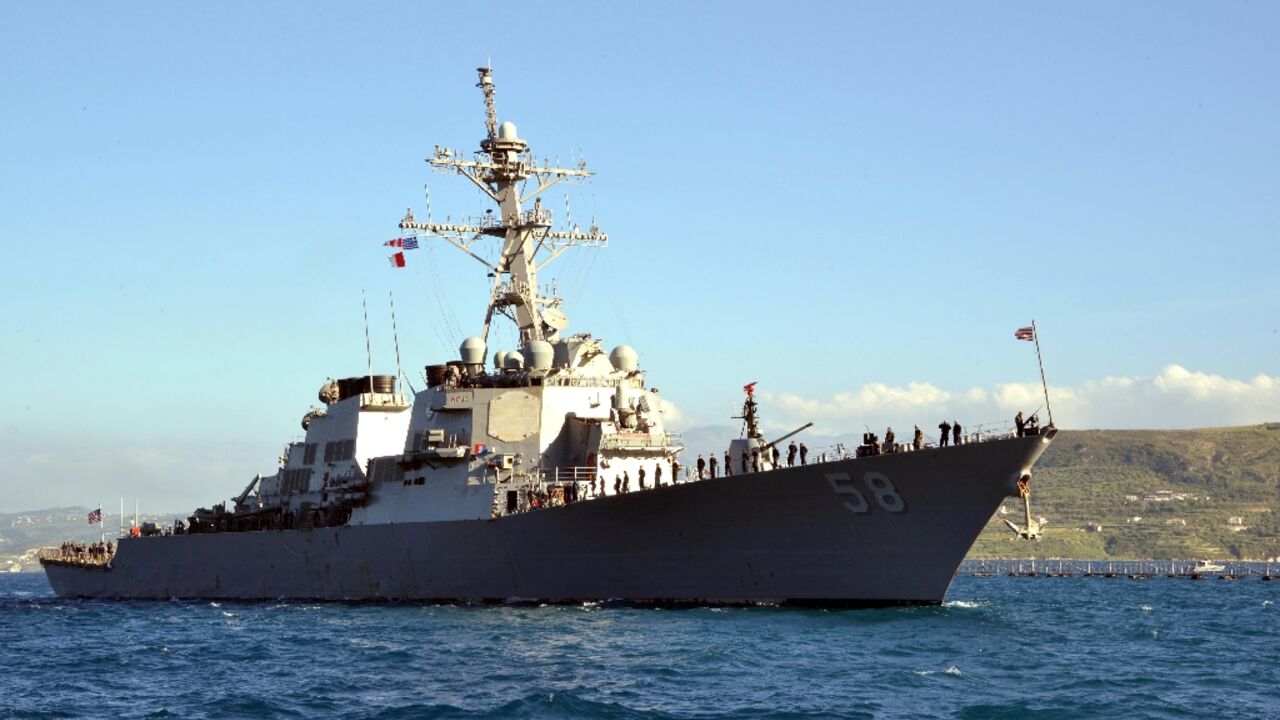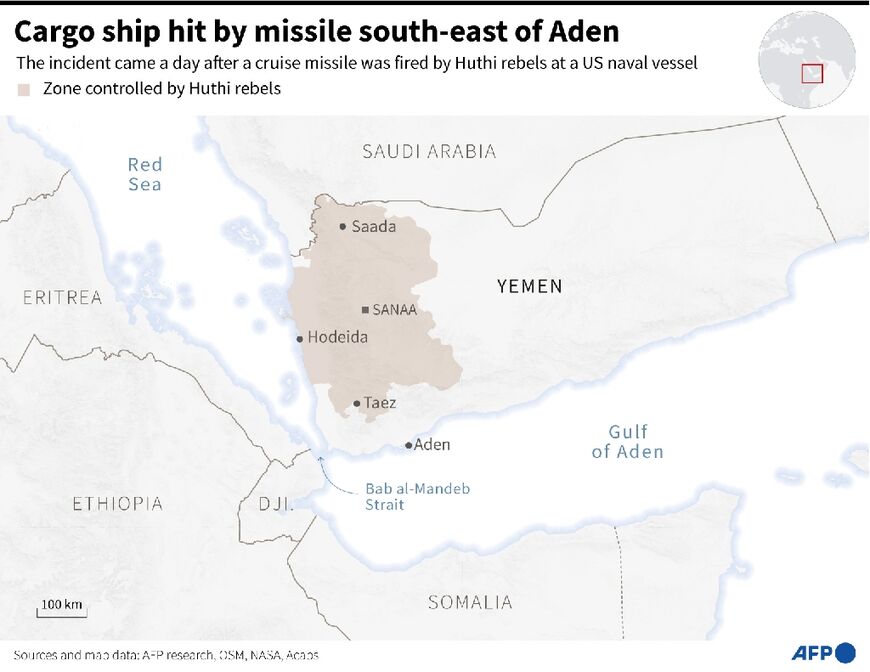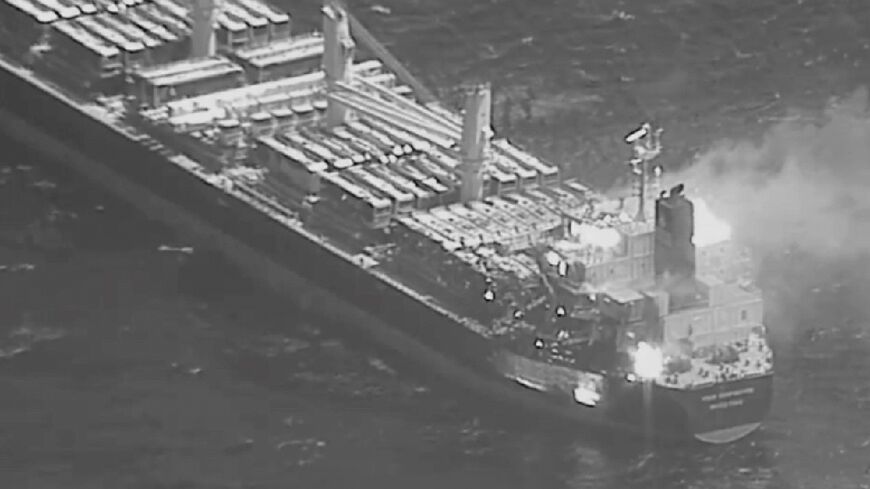Houthi missile hits US-owned ship off Yemen: US military

Yemen's Huthi rebels hit a US-owned cargo vessel with a missile on Monday, the US military said, heightening fears for the volatile region after repeated attacks on shipping triggered American and British strikes.
After the Western strikes against scores of rebel targets last Friday, the Huthis said they would not be deterred and declared that US and British interests were "legitimate targets".
The Marshall Islands-flagged Gibraltar Eagle suffered a fire on board but no casualties and remained seaworthy, the US Central Command said, after the latest attack in recent days.
"Iranian-backed Huthi militants fired an anti-ship ballistic missile from Huthi-controlled areas of Yemen and struck the M/V Gibraltar Eagle," it posted on X, formerly Twitter.
"The ship has reported no injuries or significant damage and is continuing its journey," added CENTCOM, which directs US military operations in the region.
Huthi military spokesman Yahya Saree later said the rebels "carried out a military operation targeting an American ship" in the Gulf of Aden using "a certain number of appropriate naval missiles".
A Huthi military and a Yemeni government source had told AFP that the insurgents fired three missiles on Monday.
An anti-ship ballistic missile launched earlier towards shipping lanes in the southern Red Sea failed in flight and crashed on land, CENTCOM said.
The incident in the Gulf of Aden, south of the Red Sea, comes a day after a Huthi cruise missile targeting a US destroyer was shot down by US warplanes.
Attacks by and against the Huthis, part of the "axis of resistance" of Iran-aligned groups, have raised concerns about violence spreading in the region from the Gaza war.
The Huthis say their attacks on Red Sea shipping are in solidarity with Gaza, where Iran-backed Hamas militants have been at war with Israel for more than three months.
Around 12 percent of global trade normally passes through the Bab al-Mandeb Strait, the Red Sea's entrance between southwest Yemen and Djibouti, but the rebel attacks have caused much shipping to be diverted thousands of miles around Africa.
On Monday, the US Department of Transportation recommended that US-linked commercial vessels not enter the southern Red Sea, warning of "a high degree of risk" from "potential retaliatory attacks".
- 'Potential shift' -
In Monday's attack, the United Kingdom Maritime Trade Operations security agency, run by Britain's Royal Navy, reported a "vessel hit from above by a missile".
Ambrey, a British maritime risk company, "assessed the attack to have targeted US interests in response to US military strikes on Huthi military positions in Yemen", adding that the vessel was "assessed to not be Israel-affiliated".
"The impact reportedly caused a fire in a hold. The bulker reportedly remained seaworthy, and no injuries were reported," Ambrey said in a report.
The ship was transiting the International Recommended Transit Corridor, a passage of the Gulf of Aden that is patrolled for pirates, when it was struck, Ambrey added.
Mohammed Albasha, senior Middle East analyst at the US-based Navanti Group consultancy, said the attack in the Gulf of Aden could signal a change in strategy by the Huthis.
"With the US Navy and Royal Navy warships directing their firepower primarily to the Red Sea, I expect a potential shift, where the Huthis redirect their attention to vessels in the Gulf of Aden and Arabian Sea," he said.
Washington last month announced a maritime security initiative, Operation Prosperity Guardian, to protect maritime traffic in the area, but the Huthis have kept up attacks despite several warnings.
UK Prime Minister Rishi Sunak told British lawmakers on Monday that initial assessment showed "all 13 planned targets were destroyed" in last week's allied action.
Buildings at a drone and cruise missile base and an airfield, as well as a cruise missile launcher, were struck, he said.




